What If I’m Not The Future Of House Atreides? Dune (2021) Dir. Denis Villeneuve
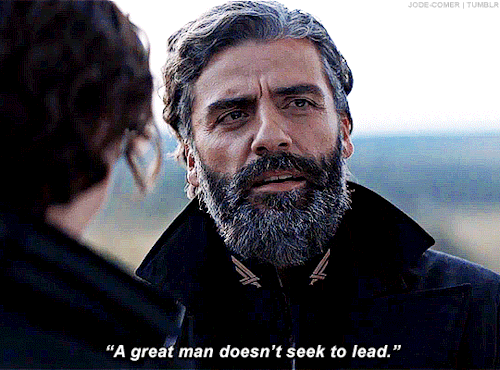
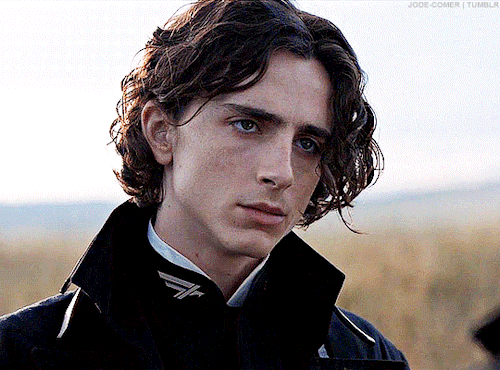
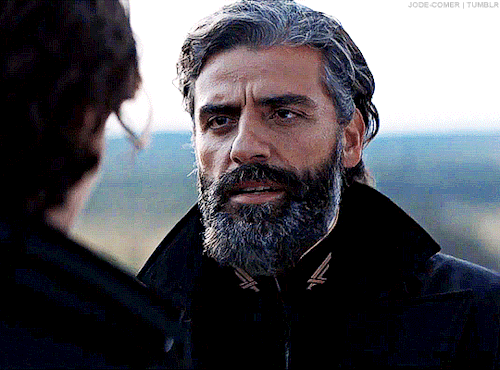
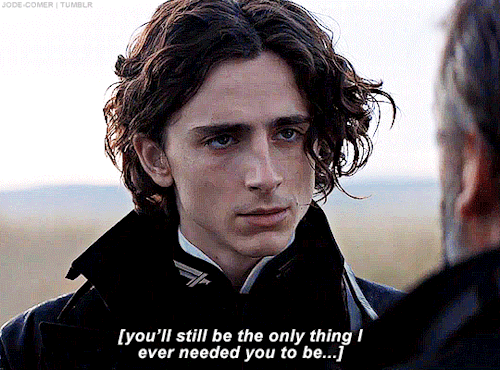
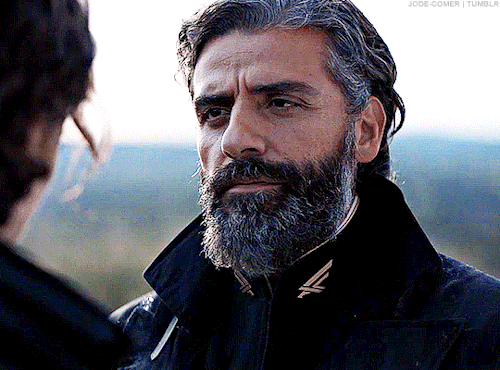

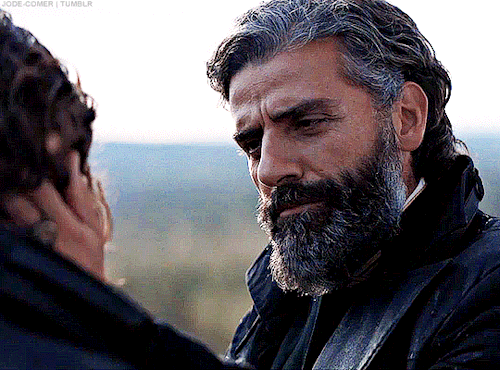
What if I’m not the future of House Atreides? Dune (2021) dir. Denis Villeneuve
More Posts from Mariefenring and Others
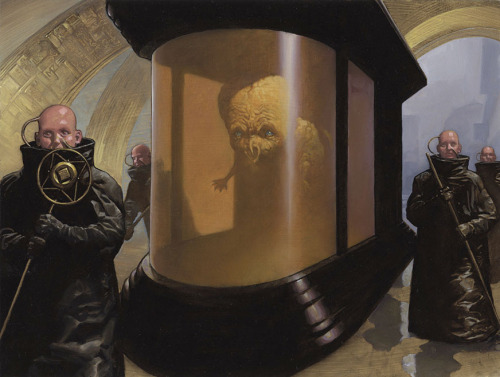
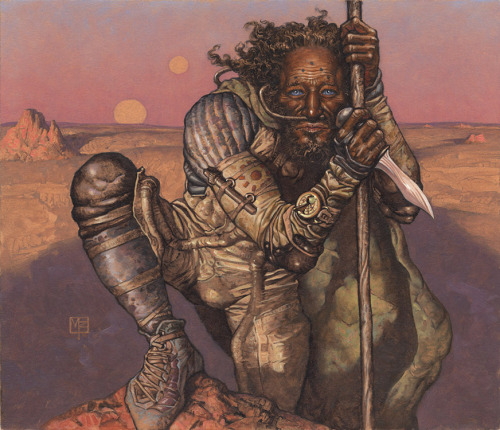
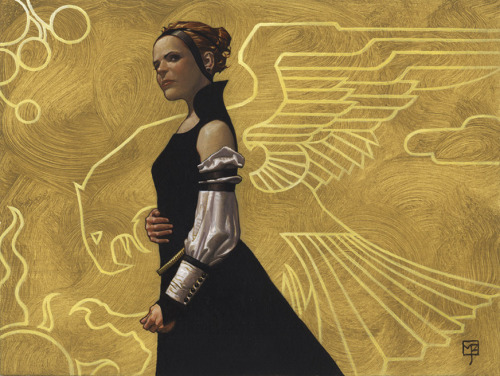
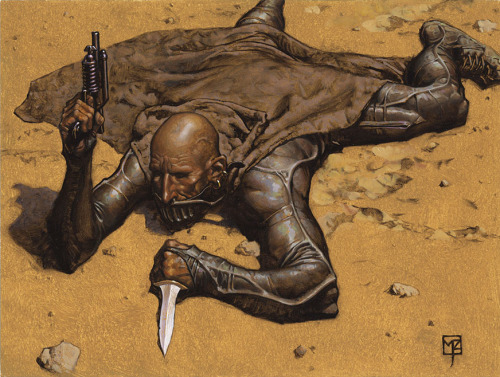
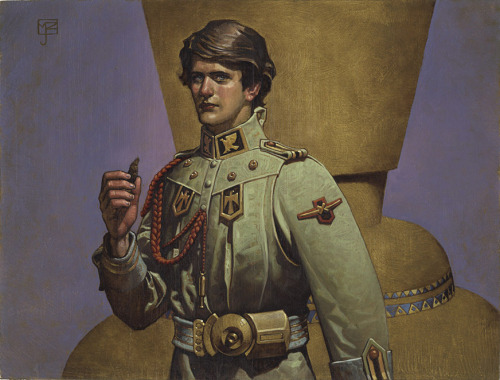
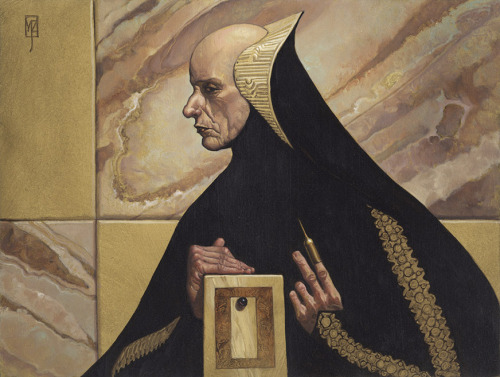
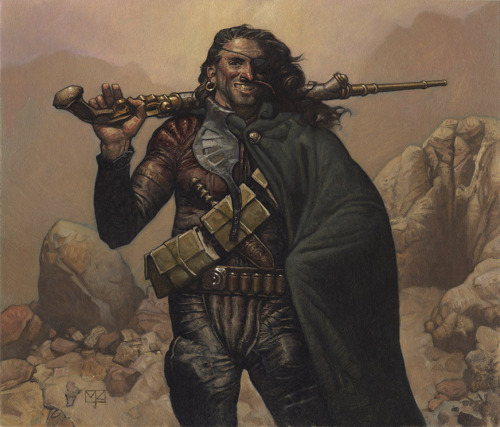
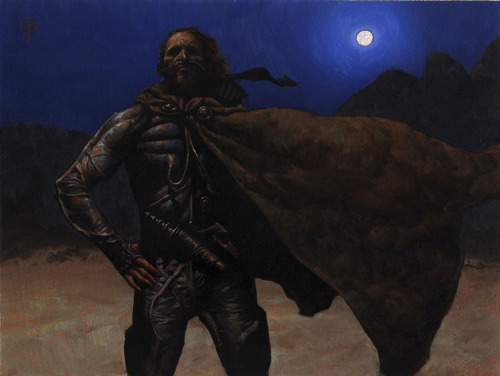
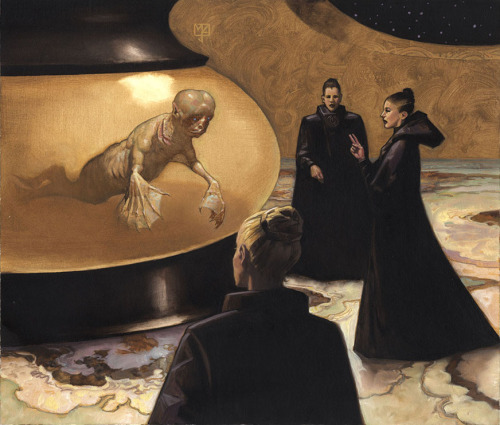
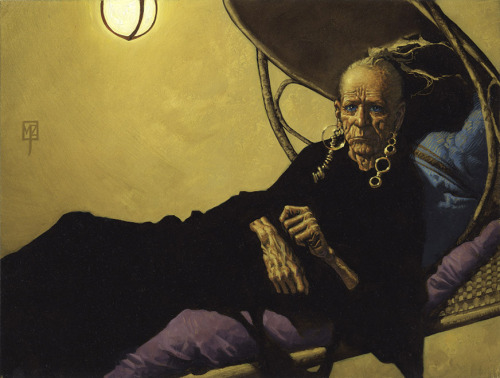
In 1997, Last Unicorn gave Zug the chance at recreating Frank Herbert’s ‘Dune’ through a new trading card series. He was originally told to base his work off of David Lynch’s film, but after complications with licensing, “they told me to avoid similarity to Lynch’s visuals” says Mark Zug.
Click here to see the rest.


“I’m following someone, and it triggers a Holy War.”
Lady Jessica and Paul Atreides in Dune (2021) // The Road; The Shadow; Too Long, Too Narrow, Maria Martins (1946)







Dune (1984) - Dir. David Lynch “I must not fear. Fear is the mind-killer. Fear is the little-death that brings total obliteration. I will face my fear. I will let it pass over me and through me. And when it has passed I will turn the inner eye to see its path. Where it has gone, there will be nothing. Only I will remain.”









“No more terrible disaster could befall your people than for them to fall into the hands of a hero.” —Dune, Frank Herbert
The Voice from the Outer World
Dune is a story of failure. SPOILERS for Dune Part 2 below
Power corrupts and all of that. We all know this. So we would be able to avoid it, right? If you know what happens you can chose another option. You would be different.
And here's a story that shows that even when you know all of this and more and can literally see the future it's still not enough.
I get why people often think that to avoid this the person in power shouldn't want that power. That this would make them somehow immune. And this logic has multiple faults (like - how can you be good at doing something you hate?) and one of them is that just not wanting to abuse power doesn't mean you would do right things with it.
We are reminded multiple times in the film (and the books also aren't shy about it) that Fremen religious belief in a saviour is not something that arose naturally. It's a belief seeded by Bene Gesserit's Missionaria Protectiva. They seeded superstitions and myths in different cultures so they could use them in a future emergency. Everything Fremen believe about their Mahdi was created so their faith could be used by a Bene Gesserit in need. And both Jessica and Paul are aware of this even before they even set a foot on Arrakis.
It's specifically made for the saviour to be a foreign one (Lisan al-Gaib is The Voice from the Outer World) because the people who made and planned to use this prophecy were ones from an outsider culture. Paul doesn't hijack Fremen beliefs to insert himself as their white saviour. These beliefs was specifically created for someone like him to use.
It was made with purpose of hijacking Fremen religion into protecting the foreigners who know how this prophecy was constructed. This is a parasitic belief (cuckoo-like faith) and the truth doesn't set anyone free. We see why with Stilgar as he wants to believe so much that everything becomes a sign. Even when he's told this has been fabricated and he was manipulated he warps it into something that supports his beliefs not undermines them. I'm sure you've seen this in real life, in real politics if not religion.
Jessica and Chani got changed the most from their book versions. They've become opposite sides of the ideological divide. Not between religion and lack of it - Jessica obviously not a believer - but between using people and letting them decide their own future.
Book Jessica is more apprehensive of Paul's choices. She's often more worried he may not survive the trials than pushing for them for power. In here she becomes the driving force of using the messianic belief Bene Gesserit implanted for Paul's benefit. She makes sure Fremen believe he fits the story. She doesn't care about Paul's wishes to avoid this burden. She knows it doesn't matter when he tells the people the truth about Bene Gesserit, their abilities and their manipulation techniques. Belief is impervious to proof and confirmation bias makes you reject all evidence to the contrary.
But then, in the film, Jessica is kind of possessed. Stilgar warns Paul not to listen to the djinn but neither he nor his mother can stop listening to the voices. The film removes Alia's book doings but replaces them with foreshadowing of what she becomes. She whispers the truths about the future to her mother even before she is born. Funny how this change make her, not Paul, the first fully prescient Atreides. She is manipulating the events when Paul refuses to and that's foreshadowing too. When Jessica took the Water of Life while pregnant she did it for the power this new position among the Fremen would give her. Alia never stood a chance. She was pre-born into this.
The only one trying to stand in the way of succumbing to the power corruption is movie version of Chani. She was never believer in a saviour. She wants her people to save themselves. They already have a plan for a better future that doesn't involve killing worlds for the Empire they never wanted anything to do with. They were not supposed to be warriors of the prophet. She sees this for what it is - a way to control her people. She understands this is another form of enslavement. The only difference is that this one is embraced. No one listens to her when she tells them the truth. They only see what they want to see.
The power that comes from being close to the rule is just as blinding when you stand close to the throne as it is when you sit on it.
And the sad part is she knows she played a part in this happening to as she convinced Paul to give this a try. She didn't see the visions he saw so she hoped he can remain the person she fell in love with. When he submits to the way prescience shows him and takes over the faith we feel her heartbreak. She watches him becoming what he feared and everyone around him stops her from trying to save him (not just other Fremen or Jessica - Gurney puts atomic arsenal in Paul's hands).
Paul doesn't bring freedom. He just changes who holds the power but in the end the structures of power remain (the similarities between Saudarkar and Fremen are not accidental). And billions die so it can happen. But billions is a an abstract number. It's much easier to feel the consequences when they hit close and personal.
Everyone around Paul gets to gain something - Gurney gets revenge on Rabban, Jessica and Stilgar get to destroy Harkonnens and Emperor. They are on top now. The power corrupts even before you even hold it. Just the promise of power is enough.
This film version of Chani doesn't let us forget that this is what we watch. That what is happening is not a good thing. We as humans have tendency to gloss over big numbers of deaths when it's unseen people with whom we have no emotional connections. Through her eyes the loss is so much more personal. She loses her Usul to Paul Muad'Dib. And he takes her people and her planet too.
As Paul says - they are Harkonnens too. And they do what Harkonnens do too. The difference was always cosmetic.
And one more thing. A lot is said about Arabic and Muslim influences in Fremen culture and religion but they aren't the only ones. One other is the word used for the places where Fremen live - Sietch. It comes from Zaporozhian Cossack name for their fortified encampments - sich.
In the West the name Cossacks invokes the cruel Russian Imperial forces that tsars used to pacify conquered territories. But this is not what comes to my mind first. In the Polish-Lithuanian Commonwealth they were free people living in the borderlands of the Commonwealth on the territories often attacked by the Ottomans. The constant raids from Turks meant they were warriors and constantly moving. But this also allowed for a lot of freedom as there wasn't a lot of direct control over these territories for the same reason. This meant that they were often joined by anyone wishing to have that freedom - from peasants escaping indenture to nobles escaping the law.
The dissatisfaction with Polish rule eventually lead to uprising and this part of Ukraine joined Russian Empire. That Empire destroyed all the freedoms Cossacks had and those independent warriors became just another enforcers of conformity for the Empire. They've become exactly what they fought against. I often wondered if Herbert chose the name Sietch intentionally to invoke this turn of events.





alia atreides & marie fenring.
"in the blood" by john mayer / portrait of elisabetta gonzaga by raffaello sanzio / adeleide by hiroshi furuyoshi / fatima aamer bilal / fair rosamund and eleanor by frank cadogan cowper




paintings that remind me of marie fenring:
portrait of a young lady, charles sillem lidderdale // study for a hundred years ago, william quiller orcharson // henriette au grand chapeau, henri evenepoel // the little foot-page, eleanor fortescue brickdale





alia atreides & marie fenrig.
"i'm nobody! who are you?" by emily dickinson / chinese shadows, the rabbit by ferdinand du puigaudeau / photography by chris bell / lyra wren / the girl king, dir. mika kaurismäki


Have you seen Moebius’ take on Feyd-Rautha?? I love the 2024 film but the femboy appreciators were robbed in this way. They really said ‘one mountain cannot contain two twinks*
-
 alex-the-second05 liked this · 3 weeks ago
alex-the-second05 liked this · 3 weeks ago -
 rosedippedsunshine reblogged this · 4 weeks ago
rosedippedsunshine reblogged this · 4 weeks ago -
 alicedyers liked this · 1 month ago
alicedyers liked this · 1 month ago -
 larax24x02 liked this · 1 month ago
larax24x02 liked this · 1 month ago -
 gatheryerosebuds14 liked this · 1 month ago
gatheryerosebuds14 liked this · 1 month ago -
 dinosexual reblogged this · 2 months ago
dinosexual reblogged this · 2 months ago -
 asmalltooth reblogged this · 2 months ago
asmalltooth reblogged this · 2 months ago -
 wickedthing liked this · 2 months ago
wickedthing liked this · 2 months ago -
 joandawson-archive liked this · 3 months ago
joandawson-archive liked this · 3 months ago -
 ivystoryweaver reblogged this · 3 months ago
ivystoryweaver reblogged this · 3 months ago -
 johannahf15 liked this · 3 months ago
johannahf15 liked this · 3 months ago -
 bluecaaat liked this · 3 months ago
bluecaaat liked this · 3 months ago -
 aestheticdreamer liked this · 4 months ago
aestheticdreamer liked this · 4 months ago -
 jonathanlapaglia liked this · 4 months ago
jonathanlapaglia liked this · 4 months ago -
 tanithpanic liked this · 4 months ago
tanithpanic liked this · 4 months ago -
 starlightsuffered reblogged this · 4 months ago
starlightsuffered reblogged this · 4 months ago -
 starlightsuffered liked this · 4 months ago
starlightsuffered liked this · 4 months ago -
 tandy-angel liked this · 4 months ago
tandy-angel liked this · 4 months ago -
 jayvikyuri reblogged this · 4 months ago
jayvikyuri reblogged this · 4 months ago -
 jayvikyuri liked this · 4 months ago
jayvikyuri liked this · 4 months ago -
 g-bkvt reblogged this · 4 months ago
g-bkvt reblogged this · 4 months ago -
 astrawr1tes liked this · 5 months ago
astrawr1tes liked this · 5 months ago -
 badevilwolf liked this · 5 months ago
badevilwolf liked this · 5 months ago -
 violetablood reblogged this · 5 months ago
violetablood reblogged this · 5 months ago -
 purveyance liked this · 6 months ago
purveyance liked this · 6 months ago -
 fuckyeahtvmoviescouple reblogged this · 6 months ago
fuckyeahtvmoviescouple reblogged this · 6 months ago -
 deadgodjess liked this · 6 months ago
deadgodjess liked this · 6 months ago -
 oochristinecuoo reblogged this · 7 months ago
oochristinecuoo reblogged this · 7 months ago -
 en-fuego reblogged this · 7 months ago
en-fuego reblogged this · 7 months ago -
 annita89clrcvubh liked this · 7 months ago
annita89clrcvubh liked this · 7 months ago -
 thedamsnackbartender reblogged this · 7 months ago
thedamsnackbartender reblogged this · 7 months ago -
 thedamsnackbartender liked this · 7 months ago
thedamsnackbartender liked this · 7 months ago -
 oochristinecuoo reblogged this · 7 months ago
oochristinecuoo reblogged this · 7 months ago -
 milfmacbeth liked this · 8 months ago
milfmacbeth liked this · 8 months ago -
 first-only reblogged this · 8 months ago
first-only reblogged this · 8 months ago -
 mant1kora reblogged this · 8 months ago
mant1kora reblogged this · 8 months ago -
 mant1kora liked this · 8 months ago
mant1kora liked this · 8 months ago -
 aesasisa liked this · 9 months ago
aesasisa liked this · 9 months ago -
 cyb3r-s1ut liked this · 10 months ago
cyb3r-s1ut liked this · 10 months ago -
 paradise-ok liked this · 10 months ago
paradise-ok liked this · 10 months ago -
 byrdsfly reblogged this · 10 months ago
byrdsfly reblogged this · 10 months ago -
 vanillatumbleweedscoffee liked this · 11 months ago
vanillatumbleweedscoffee liked this · 11 months ago -
 xenobotanist liked this · 11 months ago
xenobotanist liked this · 11 months ago -
 orpheusturn liked this · 11 months ago
orpheusturn liked this · 11 months ago -
 maaltajik liked this · 11 months ago
maaltajik liked this · 11 months ago -
 peachesandcreams-world liked this · 1 year ago
peachesandcreams-world liked this · 1 year ago -
 teal-anchor liked this · 1 year ago
teal-anchor liked this · 1 year ago -
 thebatmans-world liked this · 1 year ago
thebatmans-world liked this · 1 year ago

ERIS. a dune sideblog. SEMI-HIATUS.ask me about my alia x marie agenda. analysisabout/tagsmetaaskboxhome
183 posts



